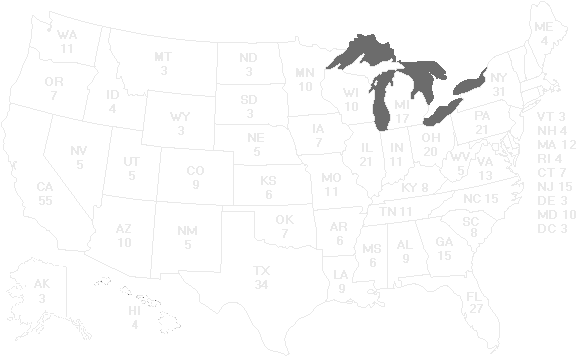Does the Electoral College confuse you?
You're not alone if it does. Here are some interesting facts to make the whole concept even more exciting!
The Basics
How many votes per state?
Each state gets a number of electors that is equal to the total Senators and House of Representatives from that state.
How many votes to win?
A candidate needs 270 votes to win in the Electoral College.
Do elected officials vote?
Elected officials at the federal level are not eligible to be Electors (people who vote in the Electoral College).
Can states split their votes?
Nebraska and Maine award votes by congressional district vote totals. They can divide their Electoral votes, and are not "winner-take-all." For example, if Trump wins the overall vote in Nebraska, he gets 2 votes. If Clinton can win 1 of the 3 districts within Nebraska, and Romney wins the other 2 districts, then Trump would get 4 electoral votes, and Clinton would get one electoral vote.
-The Fun Facts-
Fewest states needed to win?
It is 100% possible for a candidate to win an election by securing only the votes of the 11 largest states.
Do electors vote against pledges?
More than 150 "faithless" electors have decided not to vote for the candidate that they pledged to elect.
What about the popular vote?
We have had 18 presidents who have been elected by majority in the Electoral College who did NOT receive at least 50 percent of the popular vote.
What about "faithless" voters?
More than half of the states have laws that punish an elector who is "faithless." However, these punishments have never been enforced, and the punishments are as little as a $500 fine.
The Electoral College Map
The map below shows how many representatives each state (plus Washington D.C.) has allocated in the Electoral College process.
